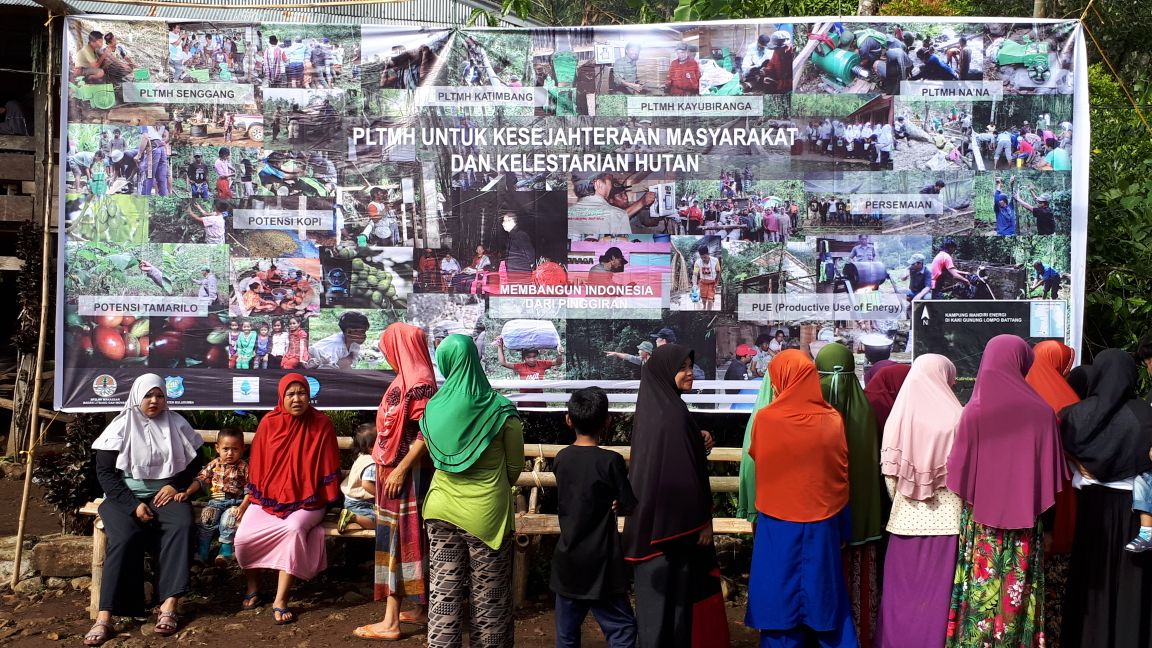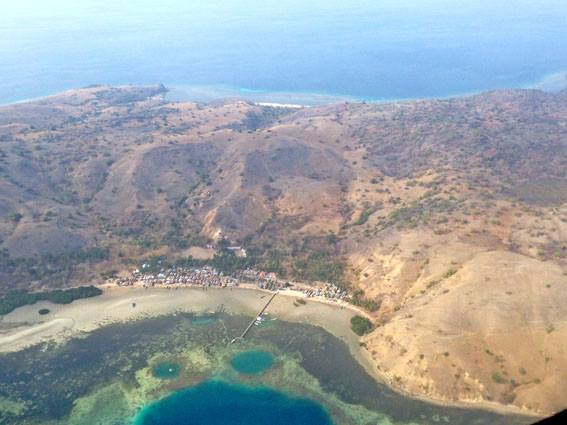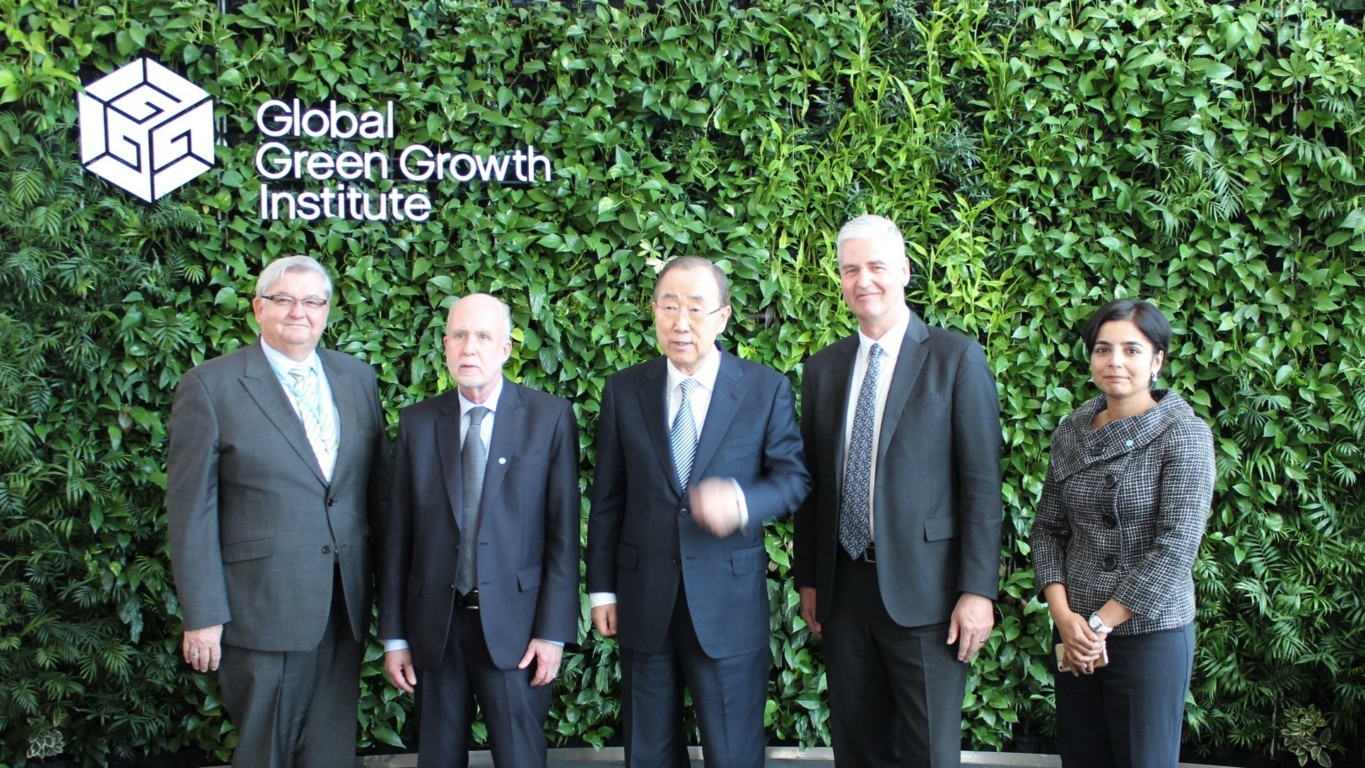Rapid and Affordable Renewable Energy Development Challenges in Indonesia
JAKARTA, INDONESIA, SEPTEMBER 14, 2017 – At the 6th Indonesia EBTKE ConEx 2017, the biggest renewable energy and clean energy conference and exhibition, the Global Green Growth Institute (GGGI) supports the Directorate General of New Renewable Energy and Energy Conservation (Ditjen EBTKE) and the Indonesian Renewable Energy Society (METI) to explore options for increasing investments in Renewable Energy.
A special session was organised on “Enabling Rapid and Affordable Renewable Energy Development”, today September 14, at Balai Kartini, Jakarta. It was aimed at sharing the experiences of different countries in promoting renewable energy development, featuring experts from Indonesia’s State Electricity Company (PLN) and also from the government and expert agencies of Thailand, China, and India. They discussed practical methodologies to enable rapid renewable energy development in Indonesia, particularly Solar PV.
In accordance with the Paris Agreement, Indonesia has set an ambitious target of emission reduction up to 29% by its own effort and up to 41% with international support by 2030 as described in Indonesia’s Nationally Determined Contributions (INDC). The target proportion of emission reduction from energy sector is 11%, the second highest after forestry with 17.2%. In the energy sector, Indonesia has set a target of 23% energy coming from new and renewable energy by 2025.
“To achieve the 23% RE target—that is 45 GW—Indonesia still faces many barriers. Currently, we generate 8 GW of electricity from renewable sources. And we only have eight years to close the gap. The government cannot work alone. But we are optimistic that all stakeholders can synergize and contribute to the national program in order to speed up and scale up RE development,” said Director of New and Renewable Energy of the Ministry of Energy and Mineral Resources, Ir. Maritje Hutapea in her opening remarks.
Despite challenges faced by Indonesia and many countries, the cost of renewable energy is decreasing significantly throughout the world, particularly in the Solar PV sector, reaching unprecedented lows with no indication of slowing down anytime soon. Declining technological costs, improved capacity, and better procurement methodologies have played a key role in lowering project costs and making renewable energy more affordable.
Different countries use a variety of procurement methodologies, such as attractive feed-in tariffs in China and Thailand, reverse auction bidding in India, and land subsidies and fiscal incentives in UAE, providing attractive incentives for investors to enter the market. “Indonesia is still facing major challenges to reduce costs and attract investors in renewable energy. GGGI therefore supports the Ministry of Energy through the exchange of international expertise and examples that could be applicable in the Indonesian context,” said GGGI’s Country Representative, Marcel Silvius.
The session highlighted challenges and brought out insights from renewable energy experts from different countries. Presenting specific potential in Indonesia’s energy sector was Nur Syamsu, Senior Manager, Procurement and Control, Renewable Energy Division of PLN. According to Mr. Syamsu, PLN focuses on hydro and geothermal sources in its RE development plan. “Tapping into high capacity potential in RE, PLN plans to generate 21.5 GW of electricity from renewable sources by 2026,” he said.
From China, Wang Jixue shared his country’s policies and approaches in renewable energy. Mr. Jixue is the Director of China Renewable Energy Engineering Institute (CREEI), an institution dedicated to the management of hydro, wind and solar power technologies in China. Sharing experiences on renewable energy targets and procurement approaches in India was Dr. Ashvini Kumar, the Managing Director of Solar Energy Corporation of India (SECI) and a solar energy expert with over three decades of experience. The session also featured Tanongsak Wongla, the Director of Energy Strategy Development Group from the Energy Policy and Planning Office (EPPO) of Thailand’s Ministry of Energy, sharing his expertise from a policy-making standpoint for Thailand.
Endorsed by Dirjen EBTKE and METI, the 6th Indonesia EBTKE ConEx 2017 is held at Balai Kartini on Sep 13-15, 2017, showcasing various topics, issues, products as well as business opportunities in renewable energy and energy conservation in Indonesia. This year EBTKE ConEx focuses on discussing Renewable Energy as the solution for energy security and Paris Agreement.




